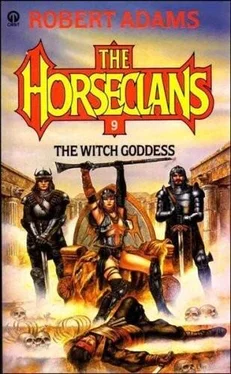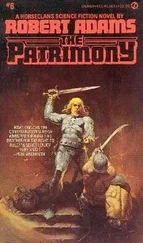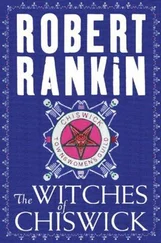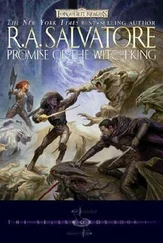Bili was not exaggerating. Ahndee had dropped his reins and his sword dangled by its knot from his wrist. Though his booted feet still filled the stirrups, his body was now slumped over the pommel and his two arms weakly encircled the neck of his mount.
The young thoheeks grasped the gray’s bridle, faced him about, slapped his rump sharply and shouted. Even so, the gelding made to stop at the end of the bridge until a sharp nip of Mahvros’s big teeth changed his mind.
Laying aside both axe and javelin, Bili took Klairuhnz under the arms and dragged him back from the windrow of dead men and horses, propping his armored body in a sitting posture against the bridge rail. Odd, he thought vaguely, I think he’s still alive, and he should be well dead by now, considering where the sword caught him…
Striding back, he picked up the short, heavy dart that had wounded Mahvros, drew back his brawny arm, chose a target and then made a running cast.
One of the ruffians with only a breastplate was adjusting his stirrup leathers when the hard-flung missile took him in the small of the back. The sharp steel head tore through rough clothing, then skin, kidney, guts and fat, standing far enough out from the man’s belly to prick the horse when he stumbled against its flank. Scream of horse almost drowned out scream of man. And as the still-screaming man fell to kick and writhe his life away in the dust, most of his fellow rebels made to follow the riderless horse up the road and into the forest.
But a big, spike-bearded man—he who wore a full, matching panoply and sat a large, fully trained destrier— headed off the fleeing men and beat them back with the flat of his sword. Driving them back to their former places, he began to harangue them. Bili, leaning on his gory axe among the dead men whom he expected to soon join, could pick out words and phrases of the angrily shouted monologue, for all that he had not heard Old Ehleeneekos spoken in ten years.
“… cowards… to fear but one, dismounted man… and he a God-cursed heathen… creatures of filth… gotten on diseased sows by spineless curdogs… gain your freedom?… lead all men to the True Faith?… treasure and land and women?… Salvation… killing heathens for the one, true God?”
Bili shook his head, vainly trying to clear it of the residue of dizziness. A true product of his race and upbringing, he had no fear of death, of “going to Wind.” He was a bit sorry that he was to go so early in his life, but then every warrior faced his last battle soon or late. He would have liked to have seen his ill father and his sweet mothers just one time more, but he knew that they would rejoice when they learned that he had fallen in honor, the blood of his foes clotting his axe from spikepoint to haftbutt. And his brother Djef, six months his junior, would surely make a good chief and Thoheeks of Morguhn… maybe even a better one than he, Bili, would have made.
” Dirtmen !” he shouted derisively at the band of ruffians. “Rapists of ewes and she-goats! Your fellow bastards here are lonely. Are you coming to join them, or are you all going to run home like the curs you are to bugger your own infant sons? That’s an old Ehleen custom, isn’t it, you priest-ridden pigs? An old Ehleen custom, like the eating of dung?”
He carried on in the same vein, each succeeding insult more repugnant and offensive than its predecessor. The spike-bearded leader wisely held his own tongue, hoping that Bili’s sneering contumely and racial insults would raise an aggressive spark in his battered, demoralized band, where his own oration had so clearly failed.
At length, one of the tatterdemalions was stung to the very quick. Shrieking maniacally, waving his aged saber, he spurred his horse straight at that lone figure in the center of the bridge.
Bili just stood his ground. To the watching rebels it appeared that he was certain to be ridden down, but Bili had positioned himself cunningly and he correctly judged the oncoming rider to be something less than an accomplished horseman.
The rebel’s horse had to jump in order to clear the bodies of the two dead horses lying almost atop each other and thoroughly blocking his route to the axeman. Before the rider could recover enough of his balance to even think of using his sword, Bili had let go his axe to dangle by its thong, grabbed a sandaled foot and a thick, hairy leg and heaved the rebel over the other side of his mount.
Dropping his weapon and squalling his terror, the Ehleen clawed frantically for a grip on the smooth-worn bridge rail; but he missed, and commenced a despairing howl which was abruptly terminated when his hurtling body struck the swift-flowing water thirty feet below. He had been one of the “lucky” ones—attired in an almost-complete set of three-quarter plate—and, since he could not swim anyway, he sank like a stone.
But Bili had not watched the watery doom of his would-be attacker. No sooner was the man out of the saddle then he who had unseated him was in it, trying to turn the unsettled and unfamiliar animal in time to meet the fresh wave of ruffians he could feel pounding up.
Feel, hear, but not see! For, once again, the sick, tight dizziness was claiming his senses. When, at last, he had gotten the skittish horse to face the forest, it was to dimly perceive the backs of the motley pack of murderous skulkers pounding toward that forest, a small shower of arrows falling amongst them, the shafts glinting as they crossed a vagrant beam of moonlight.
Bili’s brain told his arm to lift the axe, his legs to urge the new horse on in pursuit of the fleeing Ehleen rebels… vainly. His legs might have ceased to exist, might have been severed from his trunk, while his axe now seemed to weigh an impossible ton or more. The weight became just too much to even hold, and he let it go, then pitched out of the low-cut hunting saddle to land precariously balanced on the narrow railing above the deep, icy stream.
“I was later told old Djeen and Hari grabbed me just in time to keep me from being just another armored corpse on the bed of that creek,” ruminated old Bili. “For all of the troubles I had with Count Djeen shortly after that night, he was still a doughty old fighter, especially for his age—he was older than my sire—and lacking an eye and a hand. But, if memory properly serves me, it seems now that all men and some women were harder, tougher and more concerned with the really important aspects of life then than are most folk today; even my own kin—my grandsons and their get—seem addicted to frivolities and luxuries, sneering behind their soft hands at those few who still adhere to the old, good ways. The bulk of the Kindred are become as dissipated as Ehleenee.”
“But the Ahrmehnee, now, ha , they’re as stark and fierce and hardy as ever they were; they’ve become the backbone of the Confederation armies, and I hear tell that one of them— well, he’s not pure-blood Ahrmehnee, since his grandsire was Kindred, Hahfos Djohnz, the first Warden of the Ahrmehnee Marches, but I recall that old Hahfos became outwardly more an Ahrmehnee than his wife or any of her kin. Anyhow, they say that his grandson, Moorahd Djohnz, will be the next senior strahteegos .”
He chuckled to himself, a bit evilly, thinking of the cold rage of his eldest son, Senior Strahteegos Thoheeks Djef Morguhn of Djahreht, now retired from active soldiering, when he told his father, Prince Bili, of the High Lord’s plans to make a “wild Ahrmehnee” foremost military officer of the Confederation.
Bili had simply grinned in the face of his son’s towering anger, saying, “Well, Djef, you were Senior Strahteegos, as I recall, and your dear mother was pure Ahrmehnee… or did you conveniently misremember that fact, Lord Thoheeks ?
Читать дальше












